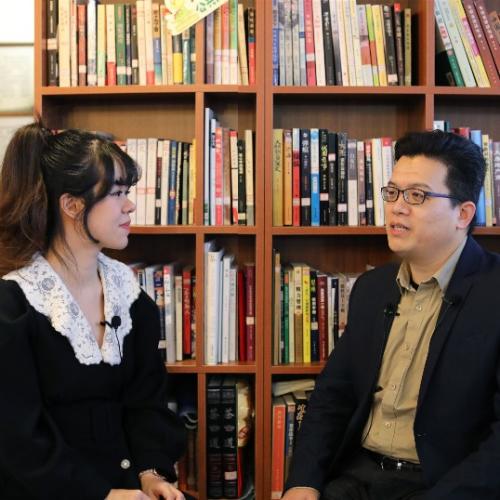


Editor's Note: The eyes of the world are turning to China. In this ongoing series How-to China, we tell stories about how Chinese approaches promote understanding, solve problems and improve the lives of people around the globe.
The cause of realizing the great rejuvenation of the Chinese nation depends on whether the ruling Communist Party of China can further push forward its campaign to build Party integrity and fight corruption, according to Xia Lu, an expert studying the history of the CPC.
In an interview with China Daily, Xia reviewed the Party's achievements in its sweeping anti-graft drive since its 18th National Congress, which has formed an atmosphere in which no officials dare to engage in corruption.
He also debunked the conspiracy theory that the anti-graft campaign is a political witch hunt.
The following are excerpts of Xia's interview with China Daily.
Q: Since the 18th National Congress of the CPC, what measures has the Party taken to fight corruption? And what has been achieved in the anti-corruption campaign?
Since the 18th CPC National Congress, the central authorities have launched an intensive and extensive anti-corruption campaign, hunting tigers (high-ranking officials) and swatting flies (low-level bureaucrats) at the same time. The Party has also fought the "four forms of decadency" - formalism, bureaucracy, hedonism and extravagance - to improve the conduct of officials.
There are two levels of strategies in the anti-corruption campaign. The first level is the basic strategy, the routine strategy. The second level involves fostering an atmosphere in society that make people conscious of the healthy behaviors of the officials.

Q: Is there any institutional innovation in the anti-corruption campaign?
International cooperation is a key aspect of the institutional innovation. Since the 18th CPC National Congress, the Chinese government has joined international treaties to promote clean governance. It has called for building a clean Silk Road to foster a sound business environment for countries involved in the Belt and Road Initiative.
Another institutional innovation is the normalization of the central inspection work. It has become routine for the Central Commission of Discipline Inspection to send central inspection teams to government departments, State-owned enterprises, and also provincial-level governments.
For example, at Renmin University where I work, we have just received the second round of central inspection. The first round was in 2013.
Q: Is there any new progress or trends in the anti-corruption campaign?
Previously, the main driving force of the anti-graft campaign came from the central authorities, from the CCDI. Since the 18th CPC National Congress, society has formed an atmosphere in which officials don't desire and don't dare to engage in corrupt behavior.
The anti-corruption achievements also benefit the country's economic development. Because if we spend too much time and energy looking for and punishing corrupt officials, it is a waste of resources that could otherwise be spent in the great cause of pursuing national rejuvenation.

Q: What do the achievements made in the anti-graft campaign mean for the upcoming 20th National Congress of the CPC?
The anti-corruption campaign has made preparations for the 20th National Congress on two levels. First, the anti-graft campaign continuously maintains pressure on officials at different levels so that they don't only focus on their KPI, but also on their behaviors.
Also, the achievements of the anti-corruption campaign deliver a message to the outside world and all of society that without the anti-corruption efforts, there would be no further development. All further development should be based on the decent and clean behaviors of government officials.
Q: Some foreign media outlets have claimed that the anti-corruption drive is a political witch hunt? What do you think about it?
I think this is a typical conspiracy theory. They are still using outdated factionist's model of thinking to understand Chinese politics and try to use these information to influence foreign readers. This is a misconception and misinformation.
We can divide foreigners who are interested in China into several groups. The first group is the politicians, the second group is scholars, China watchers and analysts, and the third group is foreign media and journalists. The professors that I know rarely make this kind of claim.
About the interviewee

Xia Lu is an associate professor at the School of Marxism Studies at the Renmin University of China. He is also a research fellow of the National Academy for Development and Strategy at the university.
He holds a PhD in politics and public administration from the University of Hong Kong.
His research focuses on comparative politics, the history of contemporary Chinese politics, and the relations between intellectuals and power.
Crew:
Host: Cao Zinan
Video editor: Cao Zinan
Camera: Ma Chi and Zhang Wenfang
Script: Ma Chi
Supervisor: Wang Jianfen
If you have any problems with this article, please contact us at app@chinadaily.com.cn and we'll immediately get back to you.